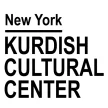Yılmaz Güney
Yılmaz Güney was a Kurdish film director, screenwriter, novelist, and actor who was active from 1958 to 1983. He rose to early prominence as an actor, then as a director. Many of his films were devoted to the plight of ordinary working-class people. Güney won the Palme d’Or at the Cannes Film Festival in 1982 for the film Yol (The Road) which he co-produced with Şerif Gören.
Life
Yılmaz Güney was born Yılmaz Pütün in 1937 in the village of Yenice in Adana province. His father, Hamit, was a Zaza Kurd from Siverek in Şanlıurfa province. His mother was a Kurmanci Kurd from Varto in Muş province.
His parents migrated to Adana to labor in the cotton fields, and their son grew up in the Kurdish working class. Besides working in the cotton fields himself, he worked as a movie delivery boy and drove a horse cart. His working-class origins form the background to his later realistic portrayals of the downtrodden in Turkish society.
While he was still in high school, he wrote stories for a local magazine, including one about a person aspiring for a better world. The authorities deemed Communist propaganda and put him on trial.
In 1957, Güney went to Istanbul to study law and economics at the university. Soon after he arrived, he was sentenced to seven and a half years imprisonment for “Communist propaganda.” He appealed the conviction.
Meanwhile Güney was drawn to film-making. Turkish cinemas had hitherto shown mainly state-sanctioned melodramas, war films, and adaptations of plays. But Yeşilçam, the Turkish studio system, had recently welcome a handful of new directors who were using cinema to create more realistic and personal portrayals of ordinary life.
In 1958 one of them, the left-wing director Atıf Yılmaz, cast Güney as a supporting actor in Bu Vatanın Çocukları (The Children of the Fatherland). The same hear Güney got a leading role in Alageyik (Red Deer). He was highly successful, appearing in up to twenty films a year as he rocketed to stardom as one of Turkey’s most popular actors.
The appeals court In Istanbul reduced his prison sentence to one year and a half, but before he could enter prison, the 1960 coup d’état interrupted. He was finally imprisoned in June 1961. In prison he wrote a novel, They Died with Their Heads Bowed, which some labeled Communist. He was released in 1962.
In 1965 Güney began directing his own films, which gave him a degree of financial freedom. By 1968 he had formed his own production company, Güney Filmcilik (Güney Films). Over the next few years, the titles of his films mirrored the realities of downtrodden people in Turkey, whom he often portrayed as struggling against the mighty and powerful, such as Kasımpaşalı Recep (Recep from Kasımpaşa) and Konyakçı (the Cognac Drinker), both from 1965.
His other films from this period include Umut (Hope, 1970); Ağıt (Elegy, 1972); Acı (Pain, 1971); and Umutsuz(The Hopeless, 1971). Umut is considered to the first realistic film in Turkish cinema. The American director Elia Kazan praised it as “a poetic film, completely native, not an imitation of Hollywood or any of the European masters, it had risen out of a village environment.”
Imprisonment
After the military coup of March 1971, Güney left Istanbul to avoid further trouble with the authorities. But in 1972, during preproduction for Zavallılar (The Miserable, 1975), he was arrested for harboring anarchist students and was jailed. Another film under way at the time, Endişe (Worry, 1974), was completed by his assistant, Şerif Gören. Gören would repeat this role over the next twelve years, directing scripts that Güney wrote in prison.
Güney was released in 1974 as part of a general amnesty but was soon rearrested. A judge in Adana province had been shot dead in a nightclub during a drunken brawl. Guney was charged with his murder. He declared his innocence but was convicted and sentenced to nineteen years.
During this incarceration, he crafted his most acclaimed screenplays. His most successful were Sürü (The Herd, 1978) and Düşman (The Enemy, 1979), both directed by Zeki Ökten. Düşman won an honorable mention at the 30th Berlin International Film Festival in 1980. While in prison, Elia Kazan visited and supported him, believing he had been jailed for his political activism.
In September 1980, the new military junta banned Güney’s films, causing him to declare: “There are only two possibilities: to fight or to give up, I chose to fight.” In 1981 he escaped from prison and fled to France. In 1982 he won the Palme d’Or at the Cannes Film Festival for his film Yol (The Road), directed once again by Şerif Gören.
In 1983 Güney resumed directing. His final film, Duvar (The Wall, 1983), is a brutal tale of imprisoned children. He made it in France with the cooperation of the French government. Meanwhile, Turkey’s government revoked his citizenship, and a Turkish court sentenced him in absentia to another twenty-two years in jail.
Also in 1983 Güney co-founded the Kurdish Institute of Paris, along with the Kurdish poets Cegerxwîn and Hejar, among others.
Yılmaz Güney died of gastric cancer on September 9, 1984, in Paris. He was forty-seven years old. He is buried at the Père Lachaise Cemetery.























